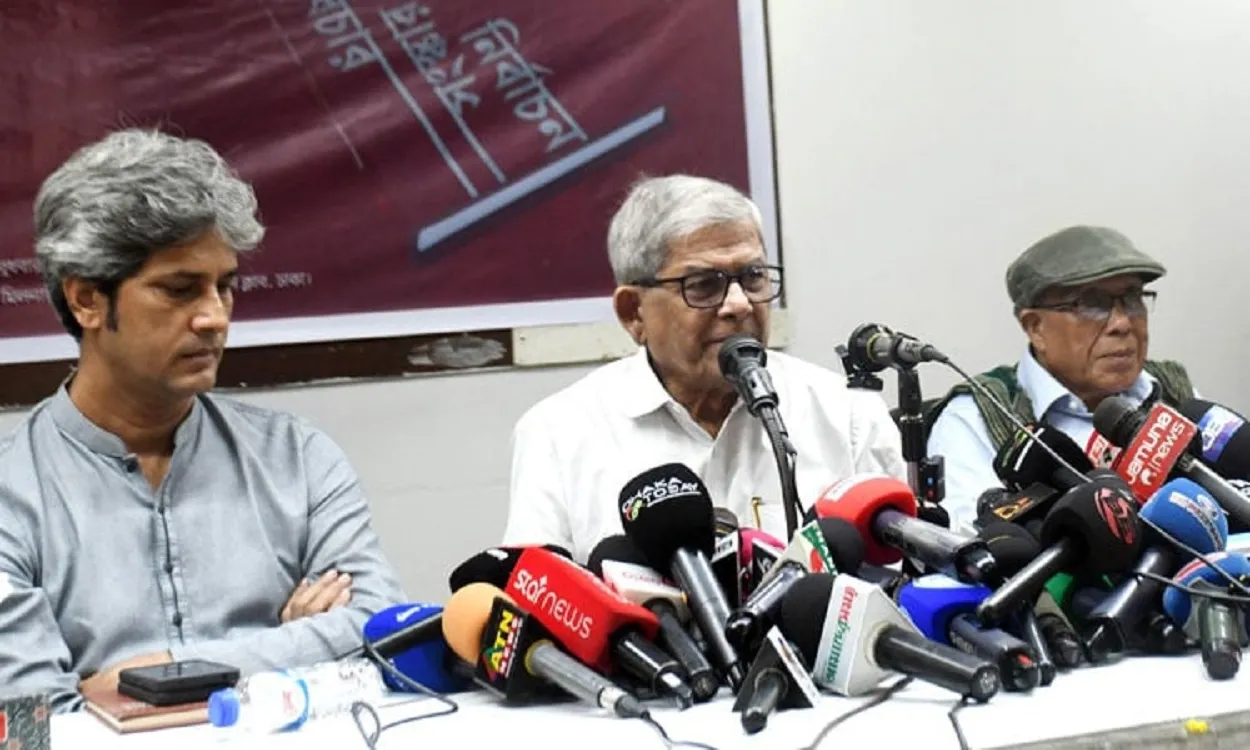


BNP Secretary General Mirza Fakhrul Islam Alamgir today alleged that the country plunged into a "terrifying autocratic government" for five years immediately following the 1971 War of Liberation.
Speaking at the launch of the book "Justice, Reform and Election: Bangladesh in the Interim Period," Alamgir claimed the BNP was responsible for subsequent reforms, transitioning the nation from one-party rule to a multi-party democracy and establishing media freedom after the 1975 changeover.
He also mentioned BNP's role in shifting from a Presidential to a Parliamentary system and passing the Caretaker Government system.
Refuting "false propaganda," he highlighted the BNP's commitment to reform through Begum Khaleda Zia’s Vision-2030 and subsequent 27-point and 31-point programs.
Regarding the current situation, Fakhrul lamented the nation's growing division and called for the proper utilization of the mass uprising.1 Commenting on the National Consensus Commission's recommendations, he confirmed the BNP submitted a "note of dissent" on non-agreed issues.
He expressed hope that the upcoming parliamentary polls would be held promptly, incorporating both the agreed and disagreed points to "create a people's Parliament."
Comment